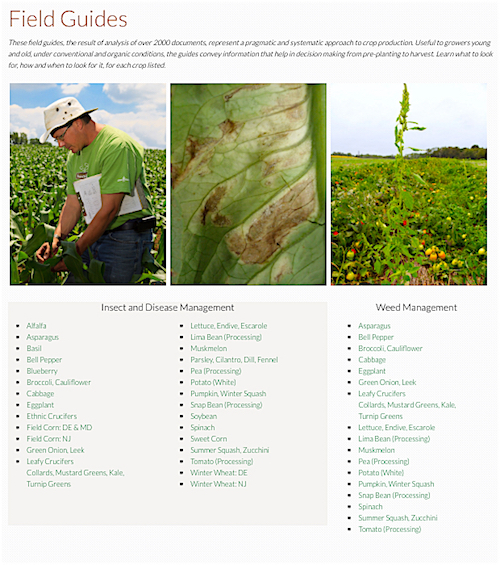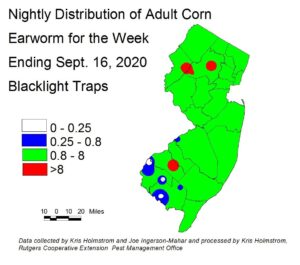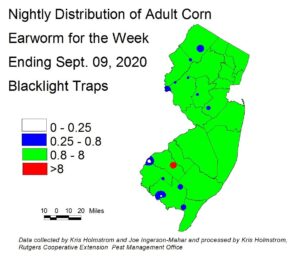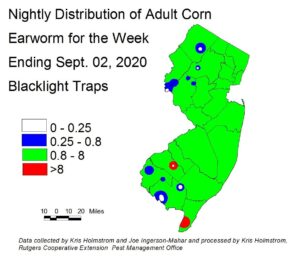Sweet Corn
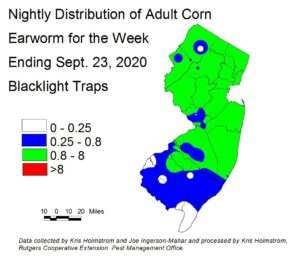 Corn earworm (CEW) moth captures have declined dramatically with cold night temperatures. As nights warm again toward the weekend, we may see some recovery in adult activity. Growers should consider this pest to still be at moderately high population levels in the state unless warmer nights indicate that the threat has diminished. The current population poses a significant risk to silking corn. Green areas on this map (see map at left) represent a 3-day spray schedule. However, night temperatures in the 40 to low 50 F range, may permit the extension of that spray interval by a day. For further information on CEW activity, see pheromone trap information below.
Corn earworm (CEW) moth captures have declined dramatically with cold night temperatures. As nights warm again toward the weekend, we may see some recovery in adult activity. Growers should consider this pest to still be at moderately high population levels in the state unless warmer nights indicate that the threat has diminished. The current population poses a significant risk to silking corn. Green areas on this map (see map at left) represent a 3-day spray schedule. However, night temperatures in the 40 to low 50 F range, may permit the extension of that spray interval by a day. For further information on CEW activity, see pheromone trap information below.
The highest nightly trap catches of CEW in black light traps for the week ending 9/23/20 are as follows:
| Long Valley 8 | Morristown 2 | Downer 1 |
| Hackettstown 3 | New Egypt 2 | Elm 1 |
| Denville 2 | Allamuchy 1 | Old Bridge 1 |
| Farmingdale 2 | Cedarville 1 | Tabernacle 1 |
 Articles in this section contain information helpful to the NJ commercial organic grower.
Articles in this section contain information helpful to the NJ commercial organic grower.